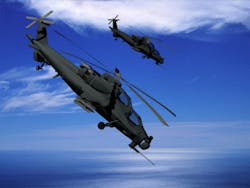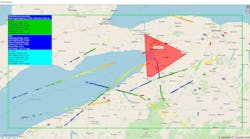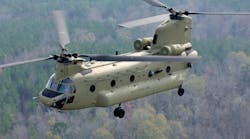MONTREAL, 2 July 2012. United Technologies companies, including Pratt & Whitney Canada Corp., will pay up to $75 million (U.S.) in penalties after pleading guilty to violating U.S. law for illegally exporting military software to China.
Executives at Pratt & Whitney Canada, United Technologies’ Quebec-based subsidiary, pleaded guilty to three counts of violating the Arms Export Control Act and making false statements in connection with the export of software used in the development of China's first modern military attack helicopter, the Z-10 Chinese aircraft.
| Related stories -- Software Code and Tools Topic Center -- Helicopters and Rotorcraft Technologies Topic Center -- Standards, Regulations, Certifications News. |
Pratt & Whitney officials said the plea arises out of the improper export to China of modifications to Hamilton Sundstrand engine control software incorporated into Pratt & Whitney helicopter engines between 2002 and 2005. Yet, U.S. attorney for Connecticut David Fein said their action were guided by its desire to become the exclusive supplier for a helicopter market in China with projected revenues of up to $2 billion.
"PWC exported controlled U.S. technology to China, knowing it would be used in the development of a military attack helicopter in violation of the U.S. arms embargo with China," Fein said.
Pratt & Whitney, defense contractor UTC (NYSE:UTX), and Hamilton Sundstrand Corp. will pay $55 million to the State Department, including $35 million in cash over four years. UTC can apply to have up to $20 million of the penalty suspended as a result of "remedial compliance measures." UTC officials said the company has invested more than $30 million since 2006 to strengthen its compliance infrastructure, including IT system enhancements and process improvements, as well as increased employee training and communications efforts.
An additional $20.7 million penalty will be paid to the U.S. Justice Department. In addition to paying the fine, UTC companies must retain an independent monitor to assess their compliance with export laws for the next two years.
Pratt & Whitney originally delivered 10 development engines in 2001 and 2002 to power the Z-10 aircraft. The company then sent modified Hamilton Sundstrand software to China driven by profit, according to court documents by the U.S. government.



